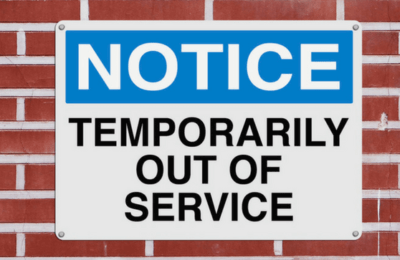How taking a career break can work wonders
People say a change is as good as a rest but surely taking a career break from work is just too risky?
A sabbatical is a break from work, lasting anywhere from a month to a year. You’ll have a specific purpose for taking the leave and your employer will hold your job open for you while you’re away.
With burn out and workplace stress a reality for employees and employers alike, here’s why you should take a sabbatical and your employer might encourage it.
Why do people take a career break or sabbatical?
-
Travel
The world’s a big place and sometimes the two-week holiday isn’t going to cut it. You might want to spend more time exploring and opt for a few months off work. That seems a long way off just now but travel won’t be on hold forever and things could change very fast.
-
Upskilling
You may be studying for a Master’s degree and need time off to focus on that. It could be related to your job and help with promotions or it could be something completely different. If you’ve always wanted to become a crime writer, then why not take a year off to learn the tricks of the trade and put pen to paper.
-
Rest
The regular 9-5 job is becoming less common and people are almost contactable 24 hours a day. This can lead to physical and or mental fatigue and taking a break to rest and re-charge can help. In fact, a study published in the Journal of Applied Psychology found that employees experienced a decline in stress after coming back from a sabbatical.
-
Volunteering
Some people use sabbaticals to volunteer for a charity. If your company has a CSR policy and works with a particular charity, this could result in a paid sabbatical. You might have been thinking about helping out at a local school before but never had the time.
-
Inspiration
If you’ve been in a role or industry for a long time you can become uninspired and may consider leaving the job completely. A sabbatical of a couple of months could give you time to consider a change in career or give you time with your family. Sometimes, the break from your job can help give you that spark again. Alternatively, it can reaffirm that a change in job is needed.
Would taking a career break or sabbatical be unpaid?
Most sabbaticals will be unpaid but you might be lucky and be able to agree something with your employer.
You could check your employment contract for more information. If a policy doesn’t exist for this type of leave, then it’s something to be discussed. As with most things in life, if you don’t ask you don’t get!
Although you’re very unlikely to get paid, you may still be able to receive benefits such as childcare vouchers and pension contributions, while on sabbatical.
How much leave should I take?
Usually, a career break is between one and 12 months.
The time taken will depend on why you want a sabbatical. If you’re traveling, you may only need a few months. If you’re upskilling, it may be a year.
Money is going to impact how long you take too. How will you fund your unpaid leave? There’s no point taking a full year if it’s going to leave your stress levels higher than before.
Why your boss should say yes
Sabbaticals can be a huge incentive for potential employees and a sign that the company is invested in the quality of life and emotions of its employees. As well as the positives outlined above for the employee, the business can benefit too.
By allowing other members of staff to fill-in while someone is on sabbatical it gives them the chance to showcase their capabilities. It helps create an agile workforce, capable of multitasking.
In the UK, unlike many other countries, employees unfortunately have no statutory right to go on sabbatical leave. However, thanks to the laws on flexible working established in UK labour laws, it is possible for employees to request a longer period of time off work.
Despite a strong case for your employer to get on board with your request, be prepared for them to say no and think about what that will mean.
Don’t make any snap decisions! You may be able to agree in principle but there may be some negotiating to do before everything is signed off.
For small businesses, finding cover for your role may be more challenging and expensive so if you can help find the solution, it could support your case.
They said yes, now what?
Your finances
Once you’ve decided what it is you want to do – whether that be cycling across Europe or volunteering for Red Cross in Nepal – you’ll need to prepare. Financial planning should be your top priority: you don’t want to run out of money halfway through.
To pay for the sabbatical, you may need to cut back on non-essentials for a little while. Perhaps reduce your budget for eating out and cut back on the monthly TV or film package, for example.
Make it official
You’ll need to write a “sabbatical letter”. Your employer should be able to help with this. The main thing to remember is to keep it simple. Include the start date and end date, and any other details that have been agreed.
So should I actually start planning to take a sabbatical?
Providing your employer is onboard with the decision and you have the financial means to support it, a sabbatical can have a positive impact on your career and your life.
Whether it’s to volunteer in Nepal, cycle around the UK or spend time with family and friends, a sabbatical could be the answer. We’re not talking about booking a week in Florida though, so invest time in the research and preparation so you can make an informed decision.
THP Chartered Accountants
Looking for business and accounts advice, whether you need help with tax planning, payroll, VAT return, or any other accountancy service just come and talk us to here at THP, with offices in Sutton, Chelmsford, Wanstead, and Saffron Walden or call us at our head office on 020 8989 5147.
About Kirsty Demeza
With a portfolio that ranges from startups to companies with a £10 million turnover, Kirsty’s talent for working closely with her clients ensures her services remain in strong demand.
“The most rewarding part of my role is seeing clients succeed,” she says. “When you help a new business and watch it expand into new premises and secure big contracts, it’s a great feeling.” Kirsty never finds two days are the same.
As well as providing accounting services that range from self-assessment tax planning and VAT to audit and accounts, she’s part of THP’s sales team and closely involved in helping our trainees to develop their skills.
More posts by Kirsty Demeza











